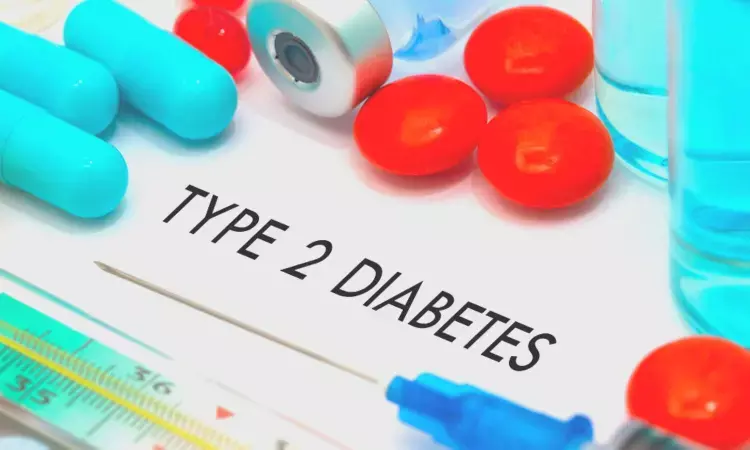- Home
- Medical news & Guidelines
- Anesthesiology
- Cardiology and CTVS
- Critical Care
- Dentistry
- Dermatology
- Diabetes and Endocrinology
- ENT
- Gastroenterology
- Medicine
- Nephrology
- Neurology
- Obstretics-Gynaecology
- Oncology
- Ophthalmology
- Orthopaedics
- Pediatrics-Neonatology
- Psychiatry
- Pulmonology
- Radiology
- Surgery
- Urology
- Laboratory Medicine
- Diet
- Nursing
- Paramedical
- Physiotherapy
- Health news
- Fact Check
- Bone Health Fact Check
- Brain Health Fact Check
- Cancer Related Fact Check
- Child Care Fact Check
- Dental and oral health fact check
- Diabetes and metabolic health fact check
- Diet and Nutrition Fact Check
- Eye and ENT Care Fact Check
- Fitness fact check
- Gut health fact check
- Heart health fact check
- Kidney health fact check
- Medical education fact check
- Men's health fact check
- Respiratory fact check
- Skin and hair care fact check
- Vaccine and Immunization fact check
- Women's health fact check
- AYUSH
- State News
- Andaman and Nicobar Islands
- Andhra Pradesh
- Arunachal Pradesh
- Assam
- Bihar
- Chandigarh
- Chattisgarh
- Dadra and Nagar Haveli
- Daman and Diu
- Delhi
- Goa
- Gujarat
- Haryana
- Himachal Pradesh
- Jammu & Kashmir
- Jharkhand
- Karnataka
- Kerala
- Ladakh
- Lakshadweep
- Madhya Pradesh
- Maharashtra
- Manipur
- Meghalaya
- Mizoram
- Nagaland
- Odisha
- Puducherry
- Punjab
- Rajasthan
- Sikkim
- Tamil Nadu
- Telangana
- Tripura
- Uttar Pradesh
- Uttrakhand
- West Bengal
- Medical Education
- Industry
Even Lower Doses Of SGLT2 Inhibitors Effective For Renoprotection In Type 2 Diabetes

A comprehensive study published in the journal Acta Diabetologica aimed at comparing the renoprotective effects of different dosages of sodium-glucose cotransport inhibitors (SGLT2i) in individuals with Type 2 diabetes mellitus has yielded promising results. Researchers found that renoprotective efficacy of SGLT2i is independent of the incremental doses suggesting lower doses may suffice for renal outcomes.
The research, which utilized a network meta-analysis approach, assessed the impact of various "-flozins," including Empagliflozin, Canagliflozin, Dapagliflozin, Ertugliflozin, Ipragliflozin, Luseogliflozin, Remogliflozin, and Sotagliflozin, on estimated glomerular filtration rate (eGFR) decline.
The study conducted by Naveen C. Hegde and team systematically searched multiple databases and identified 45 randomized trials, encompassing 48,067 patients, that met the inclusion criteria. These trials examined the effect of different dosages of SGLT2i on eGFR as an endpoint. Utilizing the Bayesian approach of network meta-analysis and the random-effect model, the researchers assessed the renoprotective efficacy of each SGLT2i dosage. The Cochrane risk of bias tool (RoB 2.0) was employed to evaluate the quality of the studies, and the surface under the cumulative ranking curve (SUCRA) score was assigned to each dosage of the SGLT2i drugs.
● The findings revealed that Canagliflozin 100 mg demonstrated a distinct eGFR benefit, with an odds ratio of 2.3 (95% confidence interval 0.72–3.9), compared to placebo.
● ‘However, statistically non-significant eGFR benefits were observed with other "-flozins."
● Interestingly, the study indicated that renoprotective efficacy was not dose-dependent, suggesting that lower doses of SGLT2i may be sufficient to achieve favourable renal outcomes.
● In terms of the SUCRA ranking, Canagliflozin 100 mg exhibited the highest probability score of 93%, followed by Canagliflozin 300 mg and Dapagliflozin 5 mg, with sucra rank probability scores of 69% and 65%, respectively.
● These results were consistent when evaluating albumin-creatinine ratios as a secondary endpoint.
Overall, the study highlights the independent renoprotective efficacy of SGLT2i, emphasizing that incremental doses may not be necessary to achieve optimal renal outcomes. This finding could have significant implications for the treatment of individuals with Type 2 diabetes, as lower doses of SGLT2i may not only be effective but also potentially reduce the risk of adverse events associated with higher dosages.
Further research and validation are needed to solidify these findings. However, if confirmed, the use of lower doses of SGLT2 inhibitors for renoprotection could simplify treatment regimens and improve patient compliance. The potential to achieve significant renal benefits with reduced drug dosages represents a step forward in optimizing the management of renal complications in individuals with Type 2 diabetes.
Reference:
Hegde, N. C., Kumar, A., Patil, A. N., Bhattacharjee, S., Gamad, N., Kasudhan, K. S., Kumar, V., & Rastogi, A. (2023). Dose-dependent renoprotection efficacy of sglt2 inhibitors in type 2 diabetes: systematic review and network meta-analysis. Acta Diabetologica. https://doi.org/10.1007/s00592-023-02126-8
Dr Kamal Kant Kohli-MBBS, DTCD- a chest specialist with more than 30 years of practice and a flair for writing clinical articles, Dr Kamal Kant Kohli joined Medical Dialogues as a Chief Editor of Medical News. Besides writing articles, as an editor, he proofreads and verifies all the medical content published on Medical Dialogues including those coming from journals, studies,medical conferences,guidelines etc. Email: drkohli@medicaldialogues.in. Contact no. 011-43720751


